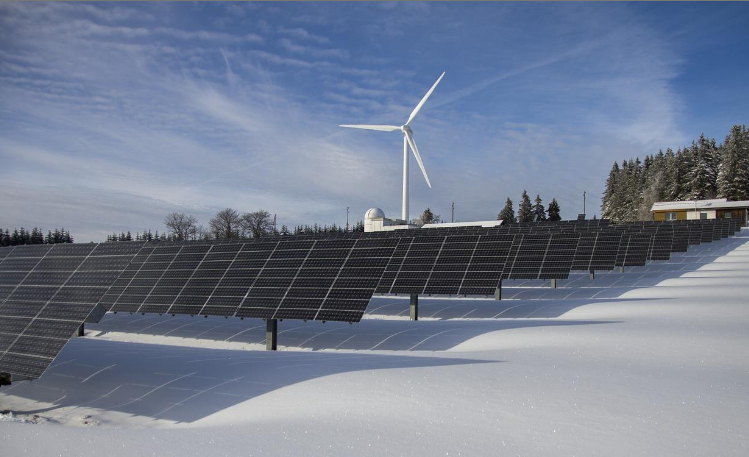Why Investing in Renewable Energy is a Smart Decision
By John Llanasas
In an era marked by environmental concerns and the urgent need to mitigate climate change, investing in renewable energy has emerged as not just a responsible choice but also a smart one. Renewable energy sources such as solar, wind, hydroelectric, biomass, and geothermal offer a myriad of benefits, ranging from reducing greenhouse gas emissions to enhancing energy security and fostering economic growth.
In this article, we delve into the compelling reasons why investing in renewable energy is a wise decision for individuals, businesses, and governments alike.
Environmental Sustainability
At the forefront of the case for renewable energy investment is its profound impact on environmental sustainability. Unlike fossil fuels, which emit harmful greenhouse gases such as carbon dioxide when burned for energy production, renewable energy sources produce little to no emissions during operation. By harnessing the power of the sun, wind, water, and other renewable resources, we can significantly reduce our carbon footprint and mitigate the adverse effects of climate change on our planet.
Energy Security and Independence
Investing in renewable energy enhances energy security by diversifying our energy sources and reducing dependence on finite fossil fuels, which are susceptible to price volatility and geopolitical tensions. Unlike oil and natural gas, renewable energy resources are abundant, widely distributed, and inexhaustible, ensuring a more stable and resilient energy supply for the future. Moreover, investing in domestic renewable energy projects promotes energy independence, reducing reliance on imported fuels and strengthening national sovereignty.
Economic Benefits
Renewable energy investments offer substantial economic benefits at both the individual and societal levels. The renewable energy sector has become a major driver of job creation, supporting millions of jobs worldwide in manufacturing, installation, operation, and maintenance. As the industry continues to grow, it stimulates economic activity, attracts investment, and revitalizes local communities. Furthermore, renewable energy projects often yield long-term cost savings, as the declining costs of technologies such as solar panels and wind turbines make them increasingly competitive with conventional energy sources.
Solar Rebates: Maximizing Returns on Investment
One of the most compelling financial incentives for investing in solar energy is the availability of solar rebates. Solar rebates, offered by governments and utilities, provide financial incentives to homeowners, businesses, and organizations that install solar photovoltaic (PV) systems. These rebates typically come in the form of direct cash incentives, tax credits, or performance-based incentives, significantly reducing the upfront cost of solar installations and accelerating the payback period for investors.
In addition to solar rebates, many jurisdictions offer net metering programs, allowing solar system owners to earn credits for excess electricity generated and exported to the grid. By leveraging solar rebates and net metering, investors can maximize the financial returns on their solar energy investments, achieving energy savings, generating passive income, and hedging against rising electricity prices.
Innovation and Technological Advancement
Investing in renewable energy drives innovation and technological advancement, spurring research and development in clean energy technologies and fostering a culture of sustainability and innovation. Breakthroughs in renewable energy technologies, such as more efficient solar panels, advanced wind turbines, and grid-scale energy storage solutions, hold the promise of further reducing costs, increasing efficiency, and expanding the reach of renewable energy around the globe. By investing in renewable energy research and development, we can unlock new opportunities for economic growth, job creation, and environmental stewardship.
Conclusion
In conclusion, investing in renewable energy is not only a moral imperative but also a sound economic decision with far-reaching benefits. From mitigating climate change and enhancing energy security to stimulating economic growth and fostering technological innovation, renewable energy offers a pathway to a sustainable and prosperous future for generations to come.
By leveraging financial incentives such as solar rebates and embracing the transformative potential of clean energy, investors can play a pivotal role in driving the transition to a low-carbon economy and building a more resilient and equitable world for all.
Author Bio:
I’m John Llanasas – a highly-skilled, well-experienced professional article writer, writing informative and engaging articles covering topics mostly related to health, productivity, technology, home improvement, and travel. By doing a lot of research I can produce productive content full of information. I am a master of creative writing, web writing, article rewriting, and proofreading. Hard work is the key to my success. That’s why I am very punctual and dedicated to my work. Creativity is an art for me that’s why plagiarism is not appreciated at all.
